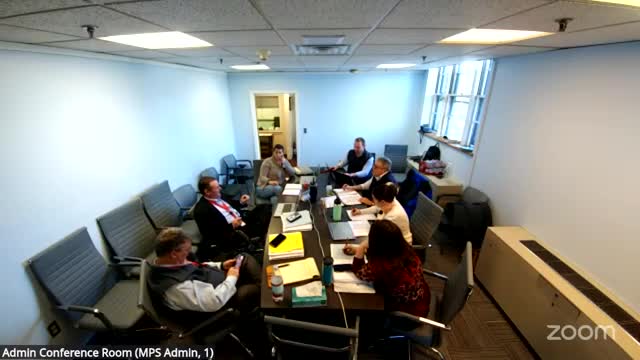Marblehead officials outline multi‑year IT refresh and call for clearer revolving‑fund roll‑forwards
Get AI-powered insights, summaries, and transcripts
Subscribe
Summary
During the Fincom School Liaison Subcommittee meeting administrators described capital purchases that crossed fiscal years, outlined a three-year lease/refresh proposal for IT, and requested clearer roll-forward accounting for school revolving funds and federal grants.
Fincom School Liaison Subcommittee members spent part of the meeting reviewing capital and revolving‑fund budgeting after administrators described a string of technology purchases that affected FY24 closeout and encumbrances.
A school official told the subcommittee that a phone system ordered before June 30 did not arrive in time and was paid out of FY24 funds, creating an encumbrance that shifted costs across fiscal years. That delayed delivery meant budgeted FY23 encumbrances were effectively realized in FY24 and complicated the year-end reconciliation.
To avoid similar year-to-year spikes, administrators recommended a planned multi‑year approach to IT capital. The proposed model is a three‑year rolling investment in which the district adds roughly $150,000 to the IT capital line each year and purchases equipment on multi‑year leases. Under the example discussed, the district would buy $400,000 of equipment in year one and keep the $150,000 line item in subsequent budgets to service lease payments; the second and third years would add another $150,000 each so the operating cost is already in the base budget when lease payments come due.
Speaker 3 (Staff member) described the approach as a way to avoid last‑minute large capital requests and to smooth device replacement across buildings. The committee and administrators discussed typical device-life expectations; speakers said student devices commonly last three to five years while teacher devices and infrastructure have differing replacement cadences.
Budget lines and curriculum funding also drew attention. The administration reported adding a curriculum-refresh line of $200,000 for FY26 to cover major adoptions (math, manipulatives and materials) rather than relying on year-end surpluses to fund curriculum purchases.
Revolving funds and grants: Members asked for clearer roll‑forward accounting of school revolving funds (for example, the preschool tuition and food-service accounts) that carry balances from year to year. Staff noted the town had not yet moved all year‑end revolving balances into the new fiscal-year accounts and that some roll‑forwards are pending system updates. Administrators emphasized that federal entitlement grants (Title I, IDEA and others) are reimbursements and often operate on a fiscal-year lag; staff said grants are typically announced in August and that grant draws are processed monthly as reimbursements after the district documents expenses.
On school lunch and other program‑specific funds, staff noted restrictions on eligible spending and advised the committee that while some revolving-account balances look large, they may be legally limited to specific uses (for example, food-service equipment). The subcommittee urged staff to present a refreshed roll‑forward table before the next budget hearing so Fincom members could confirm how revolving balances interact with the general‑fund bottom line.
No formal votes were recorded. The administration agreed to refine the IT capital plan and to circulate updated revolving‑fund and grant roll‑forwards before the next Fincom budget hearing.
